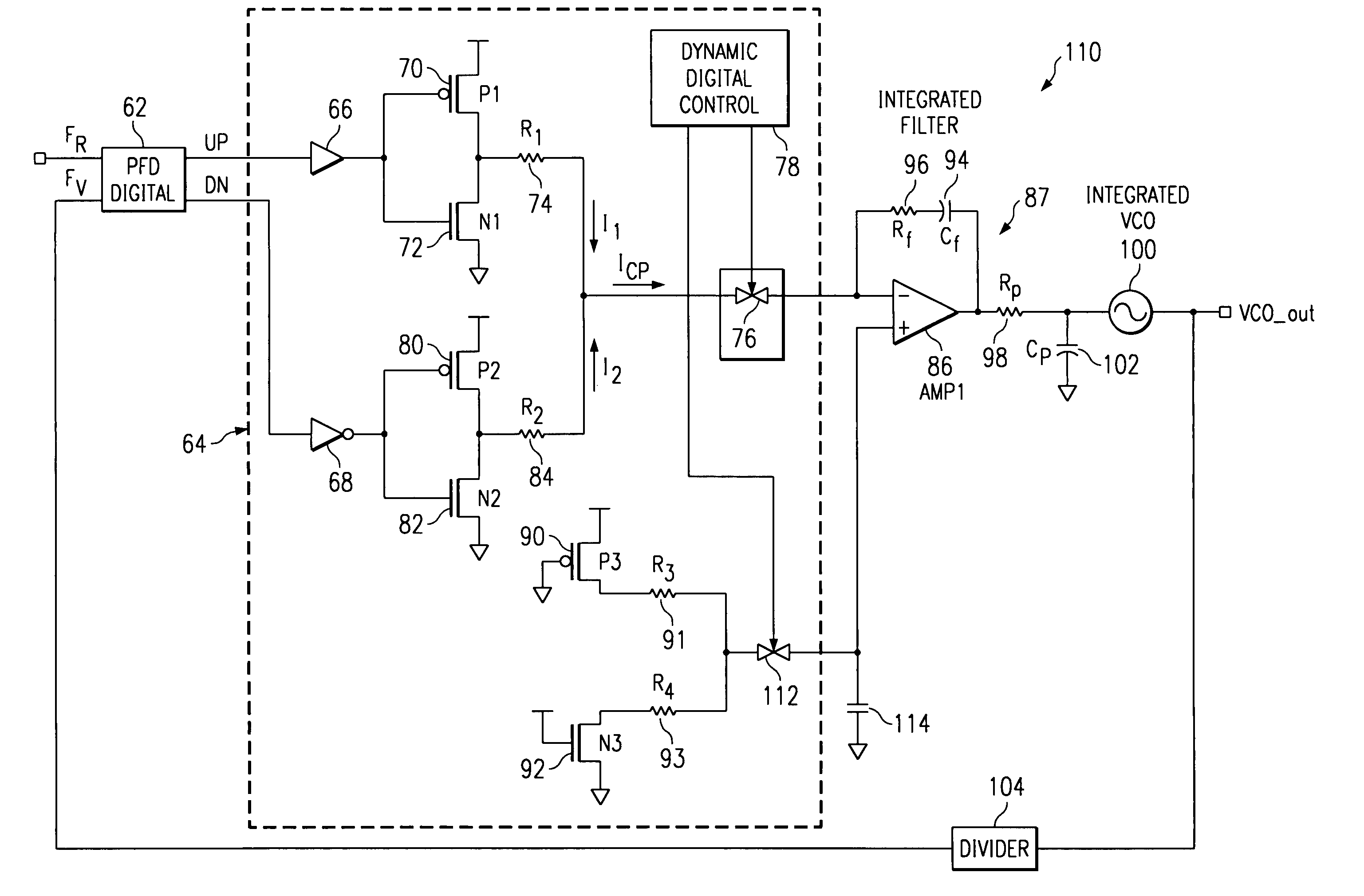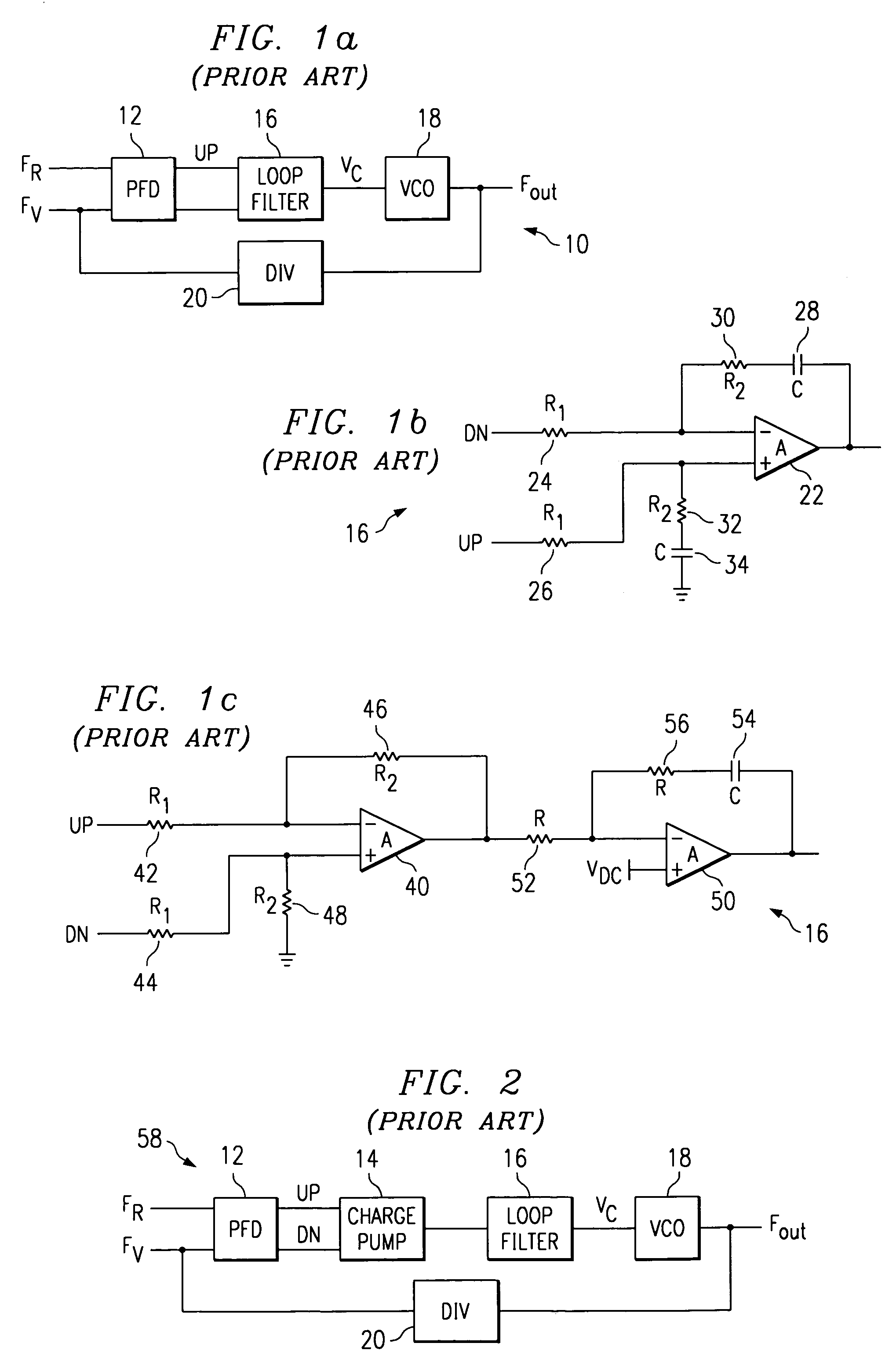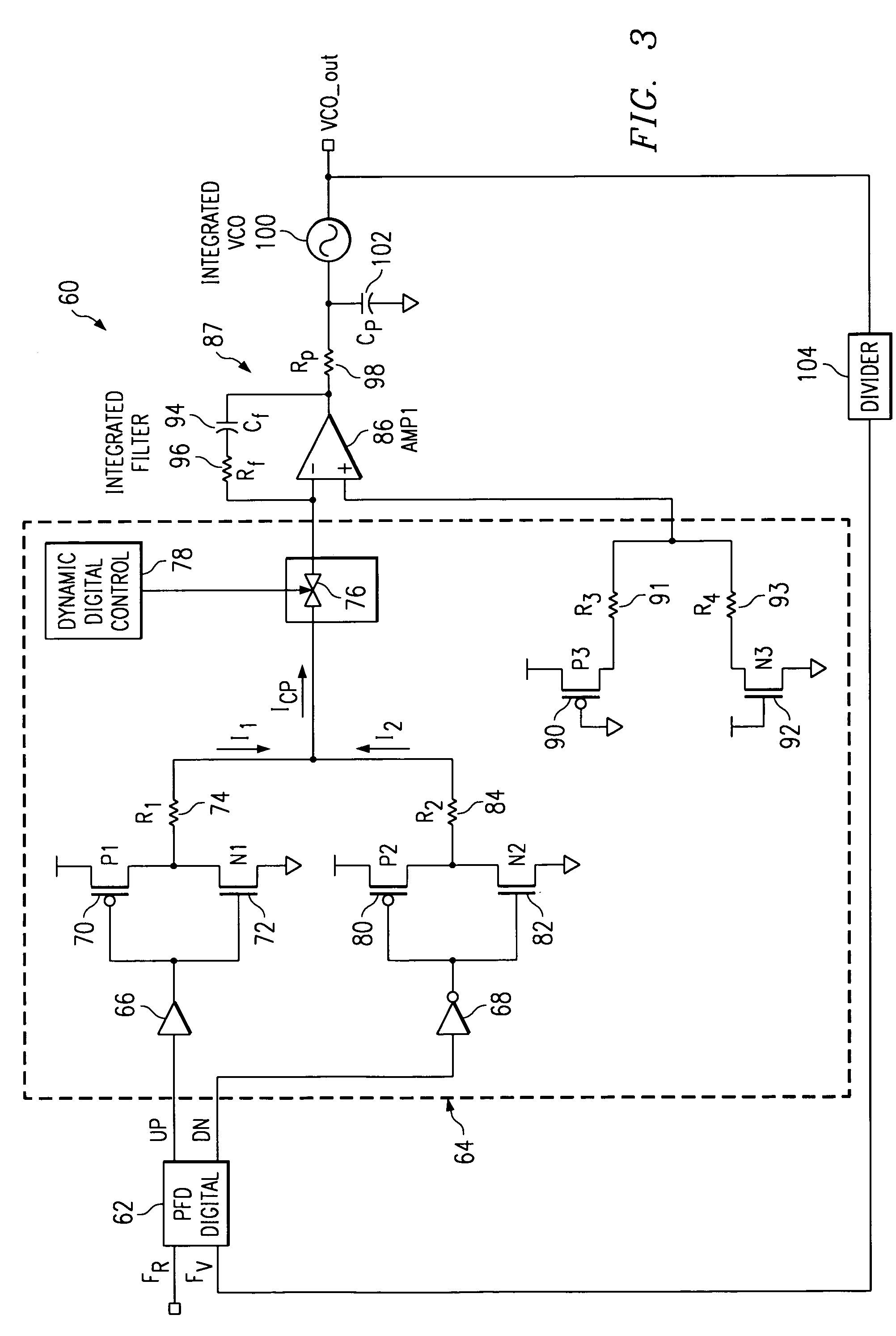Charge pump phase locked loop with improved power supply rejection
a phase lock loop and pump technology, applied in the field of electronic circuits, can solve the problems of large area requirements, common mode problems of filters, and not often used filters in integrated applications
- Summary
- Abstract
- Description
- Claims
- Application Information
AI Technical Summary
Benefits of technology
Problems solved by technology
Method used
Image
Examples
Embodiment Construction
[0033]The present invention is best understood in relation to FIGS. 3–7a–b of the drawings, like numerals being used for like elements of the various drawings.
[0034]FIG. 3 illustrates a schematic diagram of a PLL 60 that can be fully integrated on a semiconductor die, with low noise characteristics, low spur levels and high linearity. A reference signal FR is input to PFD 62. PFD 62 outputs UP and DN pulses to a digital charge pump 64. The UP node of PFD 62 is coupled to a non-inverting buffer 66 and the DN node of PFD 62 is coupled to an inverting buffer 68. The output of the non-inverting buffer 66 is coupled to both gates of p-channel transistor 70 and n-channel transistor 72 that produce a logical inversion of the signal at the gates of the transistors. A first source / drain of p-channel transistor 70 is coupled to VDD and a second source / drain of p-channel transistor 70 is coupled to a first source drain of n-channel transistor 72. The second source / drain of n-channel transistor...
PUM
 Login to View More
Login to View More Abstract
Description
Claims
Application Information
 Login to View More
Login to View More - R&D
- Intellectual Property
- Life Sciences
- Materials
- Tech Scout
- Unparalleled Data Quality
- Higher Quality Content
- 60% Fewer Hallucinations
Browse by: Latest US Patents, China's latest patents, Technical Efficacy Thesaurus, Application Domain, Technology Topic, Popular Technical Reports.
© 2025 PatSnap. All rights reserved.Legal|Privacy policy|Modern Slavery Act Transparency Statement|Sitemap|About US| Contact US: help@patsnap.com



